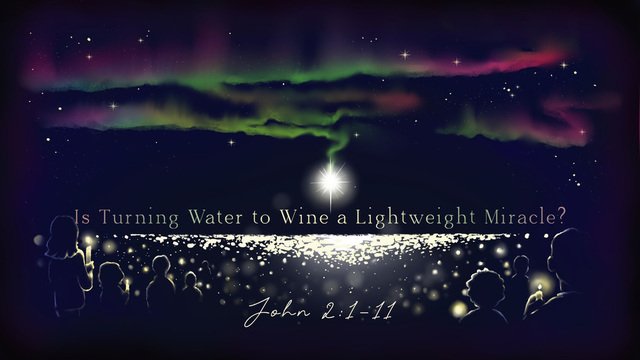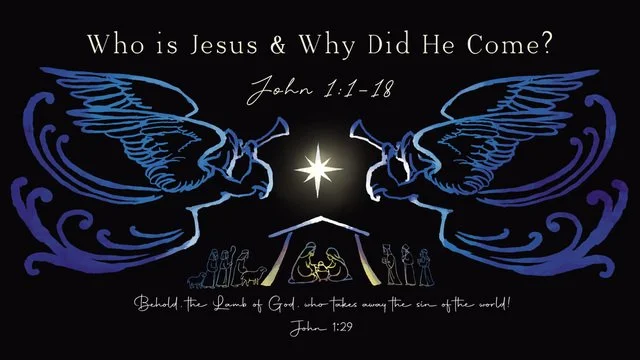Series: Signs & Glory
Title: "Do you hear God's warning?
Scripture: John 5:19-29
Daniel 7:13-14; Acts 2:36-39
Bottom line: In a world that is good at ignoring warnings, God sent his son into the world to warn us personally. This is so that we might believe that Jesus is the Christ, the Son of God, one with God, life-giver and judge over all, and that by believing have life in his name.
INTRODUCTION
CONTEXT
SERMON OUTLINE
CONCLUSION
NOTES
OUTLINES
QUESTIONS TO CONSIDER
DISCUSSION QUESTIONS
MAIN REFERENCES USED
Opening prayer: Lord God, help us grow to be and do like Jesus, while abiding in him and leading others to do the same.
INTRODUCTION
Last year, I ignored God's first warning.
It was September and my blood tests showed that my chloestoral was 210. It should be less than 100. Still, I felt fine. I didn't remember at the time that my family has a history of high chlorestal and related heart and artery issues. I just never occurred to me that I might have any of those issues. I felt fine. I exercise regularly. I didn't eat healthy at the time but I was better than most. (As if that were a good standard)
I ignored my first warning from God. Ignoring my doctor's plan for health, I didn't agree to start taking chlorestoral meds because I wanted to try and exercise and change my diet so that I could naturally bring my cholesterol down.
Mercifully, I got a second warning. I got a second chance. On October 8th of last year, while working on a disaster relief project in western NC after a major hurricane, I had a TIA (mini-stroke) while on site. God mercifully put a medical missionary on our team who quickly diagnosed my symptoms and sent me to the ER where I received excellent treatment at Pardee Hospital in Hendersonville. My second warning.
This was a mercy. I deserved a TIA, stroke or worse because I ignored the doctor's advice. As I was being triaged, I remembered I had my cholesterol numbers from 3 weeks earlier and showed them to the medical team. This helped them confirm their diagnosis.
God chose to be rich in love and mercy towards me that day. I woke up "heard his voice" and began taking his warning seriously. Since then, I am much more willing to heed the medical advice given to me on this life-threatening journey. I still ask questions and sometimes push back. But because God humbled me while giving me another chance, I'm in a better place medically.
I finally heard and heeded God's warning.
What about you?
Has God been warning you?
God warns us about things in this life and about things that affect the next.
What has God been warning you about?
What warnings are you ignoring?
"I remember hearing a knock on our front door. When I opened the door, I saw two ladies standing on my step holding Bibles and some religious literature. My suspicion was soon confirmed: these two ladies were Jehovah's Witnesses going from door to door sharing their false gospel.
As rapidly as I could, I told them we believed differently about Jesus, and the Bible clearly says Jesus is truly God. "Oh, we believe he's God," they said. "No, you don't. You believe he's a god, but you do not believe he's of the same essence as the Father. You do not believe he's one with the Father." At that point they admitted they viewed Jesus differently, and the conversation ended a few moments later. Those two ladies, as sweet as they were, standing on my porch with Bibles in hand, were rebelling against God. Anyone who does not submit to Jesus Christ—anyone who dishonors the Son-does not honor the Father." -Matt Carter
CONTEXT
John moves forward in chapters 5-10 highlighting the escalating conflict between Jesus and the Jewish leadership. John will use Jesus' encounters with others to escalate and teach/reveal who he is leading the Jewish leaders to grow more insistent on his execution for blasphemy. They are convinced that he is claiming to be another god equal to God the Father and they cannot rest until he is dealt with. For they think that he is leading the people astray.
SERMON
Bottom line: In a world that is good at ignoring warnings, God sent his son into the world to warn us personally. This is so that we might believe that Jesus is the Christ, the Son of God, one with God, life-giver and judge over all, and that by believing have life in his name.
Kent Hughes says that Jesus makes 3 claims that we all should take seriously. I'll pair them up with how other commentators saw this.
Jesus is one with the Father. (19-20)(Hughes)
Jesus' unity with the Father. (19-23)(ChatGPT)
Jesus does what only God can do. (19-22)(Carter)
Jesus has the power to give and sustain life. (21, 24-26)(Hughes)
Jesus gives spiritual life (eternal life) through belief. (24-25)(Chat GPT)
Jesus receives honor only God deserves. (23-24)(Carter)
Jesus has the authority to judge. (27-30)(Hughes)
Jesus brings future resurrection and judgment. (25-29) (ChatGPT)
Jesus has power only God can claim. (25-29)(Carter)
Hughes adds here, "These claims are eternal and they call for action."
Applications for Believers
Trust in Jesus' authority as if God (because he is). (19-23)
He is fully aligned and in sync with His Father. (19-20)
He is the source and sustainer of life. (Now and future) (21)
He is the judge of all people. (Now and in the future) (22)
He is God, so, honor (worship) Him accordingly. (23)
Rest in eternal life now. (24)
Rest as in fully rely on Him.
Eternal life--abundant life forever.
Now--it starts when you rest fully in Him.
Live with resurrection hope. (25-29) Live in light of eternity!
Listening for Jesus to speak. (25)
Embrace life as a gift. (26)
Live grateful for the mercy. (27)
Live in light of his imminent return. (28-29)
Applications for Not-yet believers
Believe/trust that Jesus as your pathway to life abundant and eternal starting today. (24-25)
Judgment is certain. No exceptions. (27-29)
There is still time to respond. (25)
For believers, this gives assurance, hope and a call to live in light of eternity.
For not-yet believers, this is a wake-up call to take Jesus' words seriously--life and judgment are in his hands.
CONCLUSION
Hughes or Carter write:
"It is hardly surprising therefore that controversy features prominently in the life and ministry of Jesus as he reveals the truth about himself.
The intriguing thing about the controversy that surrounded Jesus during his public ministry on earth is that it is not so much his teaching and ideas that were in dispute, but the claims that he made about himself. It was this fact that led C.S. Lewis to make his much-quoted remark,
Either this man was, and is, the Son of God, or else a madman, or something worse. You can shut him up for a fool, you can spit at him or kill him as a demon; or you can fall at his feet and call him Lord and God. But let us not come to him with any patronising nonsense about him being a great human teacher. He has not left that option open to us. He did not intend to.
Mere Christianity (New York, Macmillan: 1943), pp. 55-56
I've always heard it summarized as Jesus was either...
A lunatic, crazy for thinking he was God,
A liar, out to deceive for his own glory, or
The Lord, because all that he claimed is true.
But, no matter what, you cannot call him just a great teacher or a great man or a great prophet. For he could not be any of those if he lied or was crazy. You can't have it both ways.
Bottom line: In a world that is good at ignoring warnings, God sent his son into the world to warn us personally. This is so that we might believe that Jesus is the Christ, the Son of God, one with God, life-giver and judge over all, and that by believing have life in his name.
What about you?
Has God warned you?
Do you hear his warning?
Peter puts it all in perspective in his first sermon:
““Therefore let all Israel be assured of this: God has made this Jesus, whom you crucified, both Lord and Messiah.” When the people heard this, they were cut to the heart and said to Peter and the other apostles, “Brothers, what shall we do?” Peter replied, “Repent and be baptized, every one of you, in the name of Jesus Christ for the forgiveness of your sins. And you will receive the gift of the Holy Spirit. The promise is for you and your children and for all who are far off—for all whom the Lord our God will call.”” Acts 2:36-39 NIV
Invitation
How do we respond? Answer 2 questions:
Take out a card or piece of paper right now. Write down the answer to these questions:
What is God saying to me right now?
What am I going to do about it? Write this down on a sheet of paper.
What I hear you saying, Lord, is ___________________.
[my name] is going to believe/do __________________________________________________ as a result.
Finally, share this with your Home or Mission group this week when you gather as a testimony about what God is doing in your life. You don’t have to get too specific to give him praise.
Lord's Supper, 1 Cor 11:23-26 is good passage.
Also, say something like, "Christ has died, Christ is risen, Christ will come again." (past, present, and future)
Pray
NOTES
Possible titles and questions:
Are you listening to God's warning?
Is Jesus worth listening to?
Who does Jesus think he is?
Who has the final say over your future?
Are you alive or just breathing?
Did you hear God's warning?
Throughout history this is how people have responded to Jesus: there is no room for neutrality." -Mark Johnston
OUTLINES
N/A
QUESTIONS TO CONSIDER
What do I want them to know?
Why do I want them to know it?
What do I want them to do?
Why do I want them to do it?
How do they do this?
DISCUSSION QUESTIONS
Discovery Bible Study process: https://www.dbsguide.org/
Read the passage together.
Retell the story in your own words.
Discovery the story
What does this story tell me about God?
What does this story tell me about people?
If this is really true, what should I do?
What is God saying to you right now? (Write this down)
What are you going to do about it? (Write this down)
Who am I going to tell about this?
Find our sermons, podcasts, discussion questions and notes at https://www.gracetoday.net/podcast
Alternate Discussion Questions (by Jeff Vanderstelt): Based on this passage:
Who is God?
What has he done/is he doing/is he going to do?
Who am I? (In light of 1 & 2)
What do I do? (In light of who I am)
How do I do it?
Final Questions (Write this down)
What is God saying to you right now?
What are you going to do about it?
MAIN REFERENCES USED
“John,” by R. Kent Hughes, Preaching the Word Commentary, Edited by Kent Hughes
Exalting Jesus in John, by Matt Carter & Josh Wredberg
The Gospels & Epistles of John, FF Bruce
John, RC Sproul
John, Köstenberger
The Gospel According to John, DA Carson
The Light Has Come, Leslie Newbigin
The Visual Word, Patrick Schreiner
“Look at the Book” by John Piper (LATB)
“The Bible Knowledge Commentary” by Walvoord, Zuck (BKC)
“The Bible Exposition Commentary” by Warren Wiersbe (BEC)
Outline Bible, D Willmington (OB)
NIV Study Bible (NIVSB) https://www.biblica.com/resources/scholar-notes/niv-study-bible/
Chronological Life Application Study Bible (NLT)
ESV Study Bible (ESVSB) https://www.esv.org
The Bible Project https://bibleproject.com
Nicky Gumbel bible reading plan app or via YouVersion
ChatGPT
Google Gemini
Read More










